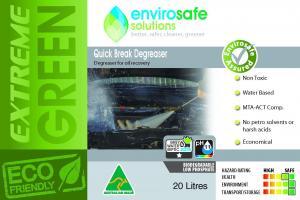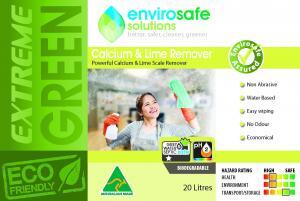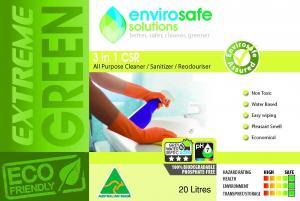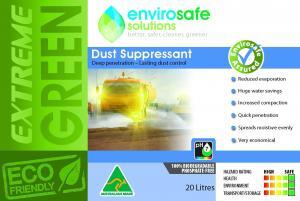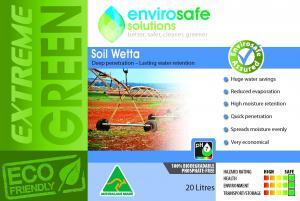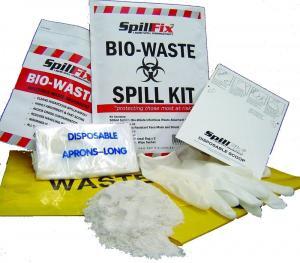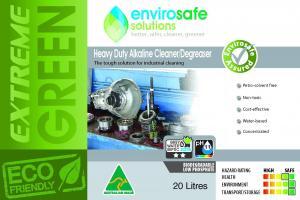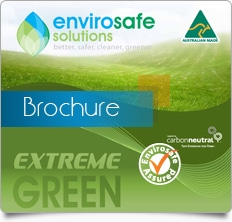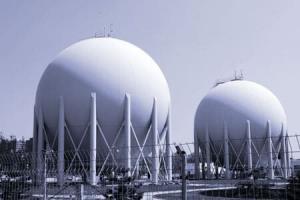 Liquefied Natural Gas (LNG) has been heralded as an alternative to diesel for the fuel-thirsty transport industry. The opening of the first Micro-LNG processing plant in Tasmania in February was touted as a step toward a more eco-friendly industry. Liquid natural gas appears promising but questions remain over its environmental credentials.
Liquefied Natural Gas (LNG) has been heralded as an alternative to diesel for the fuel-thirsty transport industry. The opening of the first Micro-LNG processing plant in Tasmania in February was touted as a step toward a more eco-friendly industry. Liquid natural gas appears promising but questions remain over its environmental credentials.
The opening of a new micro-LNG plant in Westbury, Tasmania, in February was a milestone for a technology which could potentially transform Australian transport industry.
LNG has emerged as a promising alternative fuel source to replace diesel for the heavy vehicle transport sector. Promoted as an environmentally friendly liquid, LNG has been limited by a lack of a distribution network.
The development of the micro-plant and associated supply chain was described as a significant achievement.
“Developments such as this micro-plant and associated supply infrastructure reduce the ‘chicken and egg’ nexus between fuel and vehicle supply that has stymied the uptake of LNG in the past,” Federal Minister for Resources and Energy martin Ferguson said.
“LNG can help the heavy-duty vehicle transport industry achieve significant fuel savings and emission reductions compared with diesel.
“Australia’s LNG production is going from strength to strength and projects such as this one which bring together innovation and investment are an example of the many opportunities on offer in the industry.”
What is LNG
LNG is a natural gas consisting primarily of methane which has been cooled to minus 161 degrees to reach a liquid state. Considered to be an environmentally-friendly liquid, the product is reduced in volume from its gaseous form by more than 600 times.
It is considered a safe environmentally-friendly liquid because it is not flammable or explosive.
LNG exports
Australia has become a major exporter of LNG and has been tipped to become the world’s biggest exporter by 2020.
LNG exports for 2009-10 were valued at $7.8 billion and new investments such as the micro-LNG plant in Westbury are increasing its availability to local networks.
Environmental impact
Oil giant BOC (the company behind the Westbury plant) describes LNG as an environmentally-friendly liquid releasing up to 20 per cent less greenhouse gases than diesel.
It has identified LNG as the cleanest burning fossil fuel which could reduce carbon dioxide emissions and provide an economical and environmental alternative for the transport industry.
Opponents argue the resources being pumped into LNG will reduce the viability of more sustainable, renewable energy sources in the future. They cite production of LNG as a major contributor to greenhouse gases including:
- Extraction techniques in particular coal seam gas mining;
- Production plants and the process of transforming the gas into a liquid;
- Transportation including exports overseas;
- The need to turn LNG back into a gas;
Methane, a major component of LNG, has also been described as more potent a greenhouse gas than carbon dioxide.
The way forward
Despite still being considered by some as another dirty fossil-fuel, LNG looks set to offer a viable alternative to diesel for Australia’s transport sector in the future.
While not totally environmentally-friendly, liquid natural gas developments signal a commitment toward reducing greenhouse gas emissions. Other measures include switching from traditional chemical cleaners and treatments to eco-friendly industrial liquids.
Perth-based environmental cleaning products suppliers Envirosafe Solutions has been working with the heavy transport industry to deliver powerful, non-toxic products ideal for the workshop. Its Extreme Green range includes fuel treatment Diesel Bug Killer, which improves performance while reducing emissions. For more information on Diesel Bug Killer or other environmental cleaning products contact Envirosafe Solutions’ on 1300 88 90 70 or email info@evss.com.au.
Sources:
Transport
http://www.primemovermag.com.au/news/article/cleaner-greener-transport
http://www.ret.gov.au/resources/upstream_petroleum/australian_liquefied_natural_gas/pages/home.aspx









